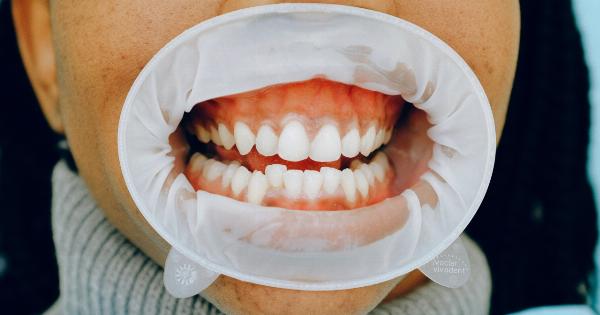Our mouth is the entry point for food and water to enter our body, and it also serves as an essential organ for communication. As such, it’s crucial to maintain excellent oral hygiene.
Without it, we can develop several issues that can lead to complicated dental problems as well as other health conditions. Here, we’ll discuss some of the potential health issues that your teeth and gums can warn you against if there’s a serious problem.
1. Teeth Grinding
Teeth grinding is a condition when you clench and grind your teeth while sleeping. This habit can be detrimental to your dental health as it wears away your enamel, leading to tooth sensitivity and pain. It can also cause headaches and earaches.
If you’re experiencing any of these symptoms, consult your dentist as soon as possible. They may suggest using a mouthguard to protect your teeth from further damage caused by grinding.
2. Bad Breath
Bad breath or halitosis is a common problem that can affect a person’s confidence and social interactions. It can be caused by several things like poor oral hygiene, gum disease, and even certain medical conditions.
If it’s persistent and doesn’t go away with brushing and flossing, it’s advisable to seek advice from your dentist to diagnose the underlying problem that could be causing your bad breath.
3. Gum Disease
Gum disease or periodontitis is a severe gum infection that can lead to tooth loss and even deteriorate your overall health. Symptoms include bleeding gums, persistent bad breath, and swollen or tender gums.
If left untreated, gum disease can result in an eventual breakdown of bone and tissue that support your teeth, eventually leading to tooth loss. Maintaining proper oral hygiene and visiting your dentist for routine check-ups can go a long way in detecting gum disease early and preventing it from progressing.
4. Tooth Decay
Cavities or tooth decay is caused when acids produced by bacteria in your mouth eat away at your teeth. This can result in pain, sensitivity, and in severe cases, tooth loss.
Symptoms include toothache, sensitivity to hot or cold foods, and visible pits or holes in your teeth. Your dentist can remove tooth decay and fill in the cavity, but prevention is the best strategy by brushing and flossing regularly, and maintaining a low-sugar diet.
5. Oral Cancer
Oral cancer is a severe condition that can be life-threatening if left untreated.
It can manifest in various ways, including persistent sores, lumps, and rough spots in your mouth and throat, and you may also experience difficulty speaking and swallowing. Visiting your dentist for regular oral cancer screenings is crucial for early detection and starting treatment as soon as possible.
6. Dry Mouth
Dry mouth or xerostomia is a condition where your mouth doesn’t produce enough saliva, leading to a dry and uncomfortable feeling that can cause difficulty eating and speaking. It can also lead to dental problems like tooth decay and gum disease.
Many things can cause dry mouth, including certain medications, radiation therapy, and autoimmune diseases like Sjogren’s syndrome. If you’re experiencing persistent dry mouth, you should consult your dentist to address the underlying issue.
7. Stained Teeth
Discolored or stained teeth can not only impact your confidence, but they could also be a warning sign of poor oral health. Excessive consumption of coffee, tea, and tobacco can lead to yellow or brown stains on your teeth.
Your dentist can help remove these stains with teeth whitening treatments, but you should also be mindful of maintaining good oral hygiene by brushing and flossing regularly to avoid this issue.
8. Mouth Ulcers
Mouth ulcers are small, painful sores that can develop in your mouth. They’re usually not harmful but can be uncomfortable and irritating. Poor oral hygiene, stress, and viral infections are common causes of mouth ulcers.
If you’re experiencing recurring mouth ulcers frequently, consult your dentist for advice on how to prevent them from appearing or treat them if they do occur.
9. Wisdom Teeth
Wisdom teeth are the last set of molars that usually grow in your late teens or early twenties. They can often cause pain and discomfort while creating pockets for bacteria to grow and cause infection.
If you’re experiencing pain or swelling in your jaw, it’s better to consult your dentist to see if your wisdom teeth need to be extracted.
10. Loose Teeth
Loose teeth can be caused by several dental conditions like gum disease, tooth decay, and injury. If your teeth are persistently loose, it’s crucial to visit your dentist as soon as possible as it can lead to tooth loss if left untreated.
In some cases, your dentist may suggest replacing your teeth with implants, bridges, or dentures to restore your smile and chewing ability.
Conclusion
Your teeth and gums can tell you more about your overall health than you think. Good oral hygiene practices like brushing, flossing, and visiting your dentist regularly for check-ups are essential for both your dental and overall well-being.
If you’re experiencing any of the above symptoms mentioned, consult with your dentist to ensure a healthy and happy mouth.





























